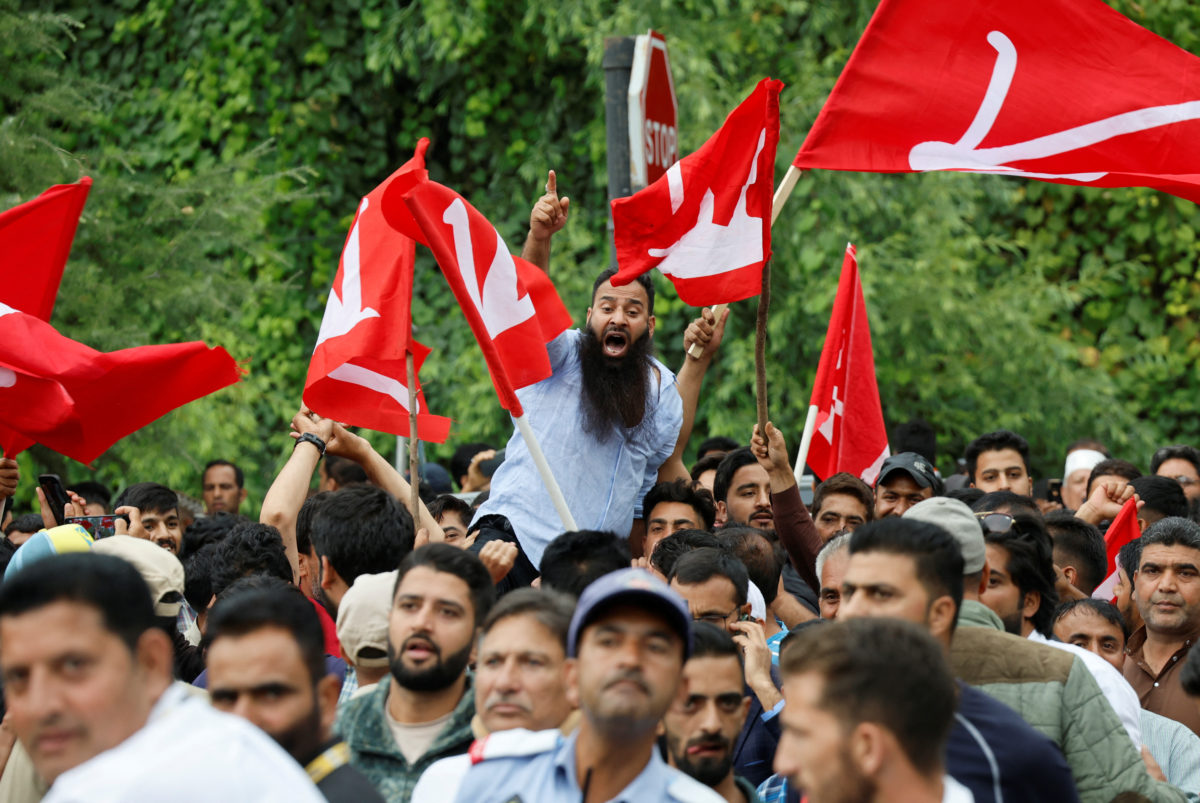As BJP’s Sunil Sharma launches a fierce offensive against Omar Abdullah and demands a CBI probe, questions grow over whether the National Conference is truly opposing or subtly aligning with the ruling party.
By: Javid Amin | 09 November 2025
A fresh wave of political turbulence is reshaping Jammu and Kashmir’s fragile landscape.
Sunil Sharma, Leader of Opposition (LoP) and senior BJP leader, has unleashed a barrage of allegations against the Omar Abdullah-led National Conference (NC) government — accusing it of corruption, mismanagement, and moral decay.
“Take oath on Quran that you’ve no ties with BJP: LOP dares CM Omar – ‘He made several attempts to forge alliance with BJP after 2014 Assembly polls’ “
But beyond the verbal attacks lies a deeper question echoing across political and public circles:
Is the NC really standing against the BJP — or strategically moving closer to it?
Sunil Sharma’s Offensive: BJP Targets Omar Abdullah
In a hard-hitting statement, Sunil Sharma demanded a Central Bureau of Investigation (CBI) probe into what he described as a multi-crore scam in the Public Works (R&B) Department of Jammu and Kashmir.
“The government has failed to uphold transparency,” Sharma said. “Corruption is rampant in the R&B Department, and the Chief Minister cannot escape accountability.”
He also called for Chief Minister Omar Abdullah’s resignation, citing what he termed a “collapse of moral and administrative credibility.”
But Sharma’s rhetoric went beyond corruption.
He accused the National Conference (NC) and Congress of misleading the public, alleging that their policies over decades fueled militancy and weakened public trust in governance.
“These are the same parties responsible for the unrest and radicalization of our youth,” Sharma claimed.
“They created the fire, and now they pretend to douse it.”
NC’s Dilemma: Opposition or Accommodation?
The National Conference now stands at a crossroads.
Traditionally the principal rival of the BJP, the party’s current posture under Omar Abdullah appears more measured and ambiguous than defiant.
Insiders suggest that NC’s pragmatic tone toward New Delhi — especially on issues of administrative cooperation — reflects strategic survival, not ideological surrender.
Yet critics within the party, like Aga Ruhullah Mehdi, have begun articulating a reformist and emotional equity-driven narrative, urging the NC to reclaim its post-Article 370 moral compass.
“People don’t need symbolism — they need sincerity,” Ruhullah recently said.
“We can’t defend Kashmir’s dignity if we keep oscillating between compromise and confrontation.”
Omar Abdullah, however, faces a balancing act:
He must preserve the NC’s legacy as a regional guardian while ensuring political relevance in an increasingly Delhi-dominated governance structure.
This tension — between legacy and leverage — defines the NC’s existential struggle in 2025.
BJP’s Calculated Push: Pressure Through Allegations
By demanding a CBI investigation, Sunil Sharma has not only cornered the NC government administratively but also symbolically challenged its moral authority.
The BJP’s strategy is clear:
It seeks to paint the NC as corrupt, compromised, and complicit, thereby eroding its credibility among urban and younger voters who crave governance and accountability over rhetoric.
The timing is also strategic — as bypolls in Nagrota and Budgam intensify political competition, the BJP is framing itself as the clean, nationalistic alternative to the “dynastic disorder” of NC and PDP politics.
The Political Tide: Realignments and Reckonings
In the broader picture, Kashmir’s political chessboard is entering a phase of ideological realignment.
-
Mehbooba Mufti’s PDP continues to be vocally anti-BJP, portraying herself as the last line of resistance against Delhi’s centralizing power.
-
NC’s ambiguity, however, leaves room for speculation — especially on issues like land ownership rights, bulldozer drives, and rehabilitation policies, where the party’s silence has been read by critics as tactical acquiescence.
-
BJP, on the other hand, has been expanding its organizational presence in Jammu and even parts of South Kashmir, leveraging administrative control and welfare schemes to normalize its acceptance in a region once politically untouchable for it.
The result?
A complex triangle of conflict, convergence, and competition — where old foes may find new utility in selective cooperation.
Public Perception: Fatigue and Fracture
Public sentiment in Kashmir has become increasingly polarized and fatigued.
Years of political upheaval, economic strain, and trust deficits have made citizens skeptical of both old promises and new slogans.
The youth, especially those drawn to Aga Ruhullah’s reformist call for emotional justice, are seeking authenticity over theatrics.
“The next election won’t be about party loyalty,” said a university researcher in Budgam.
“It’ll be about who speaks for Kashmir’s dignity, pain, and aspirations — not who shouts the loudest.”
This generational shift could redefine electoral dynamics — pushing ideological rhetoric to the margins while elevating issues like employment, education, and governance.
Analysts: A Moment of Political Recalibration
Political analysts describe this as a moment of recalibration, not chaos.
Dr. Nazir Ahmad, a political commentator based in Srinagar, noted:
“The NC’s current ambiguity may look like weakness, but it’s strategic — Omar Abdullah is keeping channels open both with Delhi and with local stakeholders.”
He added that Sunil Sharma’s corruption offensive was less about investigation and more about narrative management — an attempt to portray BJP as the “ethical contrast” to Kashmir’s traditional political elite.
The Bigger Picture: Another Political Tide Rising
The Kashmir of 2025 is not defined by slogans, but by strategic silences and calibrated alliances.
The NC-BJP equation — oscillating between confrontation and cooperation — mirrors a deeper shift in the Valley’s political grammar.
With Mehbooba Mufti doubling down on anti-Delhi rhetoric, and Engineer Rashid’s AIP mobilizing anti-establishment sentiment, the National Conference risks being squeezed from both ends — unless it redefines its position clearly.
Whether Omar Abdullah chooses coexistence or confrontation will determine not just the NC’s fate — but the future axis of Kashmiri politics itself.



